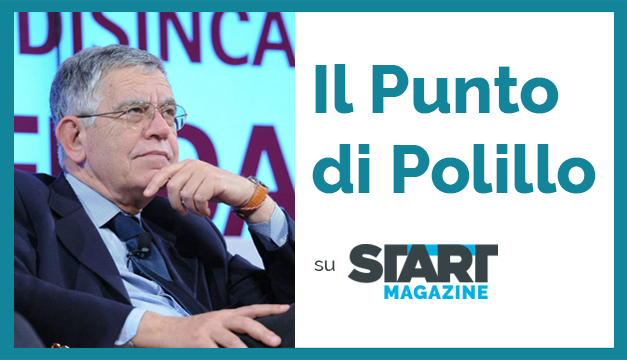All the grillisms in Goffredo Bettini’s manifesto

Gianfranco Polillo read the manifesto written by the democrat pro-Conte, Goffredo Bettini, in view of the baptism of his current Pd (sorry, of his cultural-political area)
The sky of theory, heroic abstractions, the ballet of "forms", to describe a reality, seen but not penetrated: these, from a bird's eye view, are the first sensations in reading the long essay by Goffredo Bettini. The manifesto of the Agora. The baptism of a new current, which – according to the intentions of the animators the initiative – should not be. But that, in the end, inevitably it will be. Once again Enrico Letta should "stay calm", waiting for the course of events.
The great storytelling is the context within which the more properly political discourse of the animators unfolds. Which is the traditional one: the great alliance that goes from Carlo Calenda to Leu, obviously passing through the 5 stars. But that does not contemplate Matteo Renzi: the archenemy. The one who threw down Giuseppe Conte. Victim of a real coup. "Conte – it says in the manifesto – did not fall for his errors or delays (which in part were there) but for a convergence of national and international interests that did not consider him sufficiently available to support them and therefore, for them, unreliable" . Ergo: Renzi was the main architect of this machination.
Is there a common thread running through the entire document? To seek it, the main reference is the reaffirmation of a method that seems all too similar to the principles of the old philosophy of Gramscian-inspired praxis. The language has obviously evolved, but the basic concepts are the same. Starting from the distinction between a reformism, so to speak, "poor". And that, "true", pointing – best wishes! – to reform capitalism. It is not clear whether in the domestic version or in the globalized one. In which case it would take much more than the "holy alliance" between the various families of the Italian left.
Even with these excesses, some statements of the manifesto are acceptable. Starting from the reconsideration of the relationship, which must exist between the two principles of "freedom" and "equality". Novelty, to tell the truth, anything but shocking, considering that it was at the base of the barrier that, historically, has distinguished socialists and communists. The first were aware of the fact that the principles of freedom were not negotiable. The latter, on the other hand, were willing to compromise in the name of that equality, more apparent than real, which would have led to the triumph of totalitarian systems in the homeland of realized socialism.
Anyway, always better than nothing. Especially since, after years and years, the Italian socialists are at least recognized the honors of arms, in the hope (more than in the proposal) that the new political entity – "the party-field" as it is defined – will give them "the role that they deserve…. For their ancient history and for their present. In the awareness that socialist thought in the past had many reasons which, for various reasons, did not receive adequate consensus. " Who knows why: one might say.
A sufficient guarantee? Some oversights (at least for us) feed more than a doubt. At a certain point in the document it states: "Capitalism grows above all where there is no democracy". We do not know from what the authors of the manifesto drew this belief. Perhaps looking at China, which is nevertheless an atypical system, not attributable to the historical categories on which that model was based. The prevailing forms of which are, instead, the Anglo-Saxon, Rhenish, Colbertian or Social Democratic. Therefore, the exact opposite follows. Capitalism is such a flexible structure that it can coexist in both democratic and authoritarian regimes. To the people the responsibility of avoiding possible degeneration.
Something that the Italian socialists had understood for some time, avoiding the ruinous chases towards the homeland of "real socialism". But, at the same time, trying to harness the "animal spirits" in a programming framework, able to interact with the spontaneous forces of society, to convey them towards a shared destiny. And if even today some reforms of the past have contributed to making the face of this country more human, it is certainly not due to those who preached the revolution during the day and agreed at night to share the spoils of a consociative model.
Pieces of homeland history that must be kept in mind, when reference is made to the tension "of socialism and Christianity" to "change the human condition and institutions in view of a redemption and salvation in respect of the times". Strange combination: the one just indicated. Too generic to provide a key to understand the exact direction to aim for. It should only be added that, in the document, the reference to Catholics or Catholicism does not even once occur. Reference canceled in the more generic term of Christianity and Christianity. Sufficient, to indicate a specificity? It would not seem, at least according to the famous essay by Benedetto Croce: "Why we cannot but call ourselves Christians".
This is a machine translation from Italian language of a post published on Start Magazine at the URL https://www.startmag.it/mondo/manifesto-di-goffredo-bettini/ on Wed, 14 Apr 2021 11:16:59 +0000.
